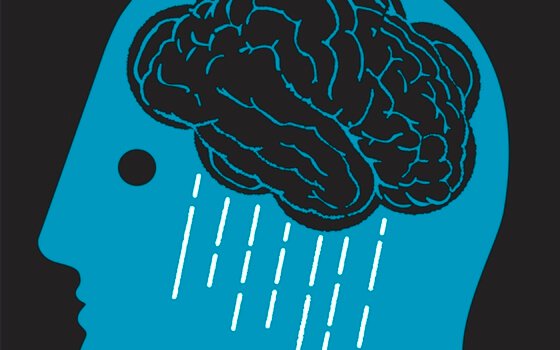People with depression often suffer from different sleep disorders, however, a curious fact that has been demonstrated by science is that, during these conditions, patients dream up to three times more than a person without depression, although something like this often causes disturbance and fatigue. , the dreams of depressed people have a very specific goal: to regulate the emotional world.
This topic is certainly new and little known to many of us, when it comes to depression, it is common for attention to focus on symptoms, triggers or different therapeutic approaches, however, this dimension is rarely addressed from this point of view of sleep. that is, understanding a little more what happens in the brain of the depressed person when he finally falls asleep.
“The interpretation of dreams is the true path to knowledge of the unconscious. -Sigmund Freud-
In fact, to Freud’s claim that sleep is the real path to the unconscious, it must also be added that this path, this singular path, can actually be a path full of tortuous curves and endless curves that will lead us many nights. However, it will give us spectacular views of what is really going through our minds.
The dreams of people with depression alone will not solve the disorder, they are just the evocation of a problem, they are like an abstract canvas of Kandinski trying to tell us something, shape what hurts us, what irritates us, what scares us. , which afflicts us. The dreams of depressed people are a mechanism of defense of the brain itself that tries to regulate the emotion that bothers it.
Dr. Rosalind D. Cartwright is a renowned psychologist at Cornell University who has devoted much of her life to researching and understanding the dream world. In his well-known book “The Mind of Twenty-Four Hours,” for example, he discusses the interesting relationship between our emotions and dreams. It’s actually a fabulous work of years and years of research, where it highlights an idea: the brain tries on its own to help us manage all our negative emotions through dreams.
The way he acts is as fascinating as he is strange, because the patient doesn’t really realize that doing so helps in a certain way. However, it tries through several mechanisms. They’re next.
Dr. Cartwright explains that when we sleep, she takes over, understanding that the most relevant thing for us right now, even before offering us a restorative physical rest, is to “push” us to solve our emotional knots.
Now it often does so in the worst way, through nightmares and unpleasant dreams, and the same is true in the dreams of people suffering from depression. Anything that causes confusion, anxiety or despair will appear in this surreal and strange territory, in an attempt. by the brain to regulate this negative emotion, to “detoxify. “such a confusing tension.
“The interpretation of dreams is the true path to knowledge of the unconscious. -Gustav Jung-
Are we aware of that? Triple, having nightmares and opening your eyes to the new day feeling tired is not much help in the face of depression, so if anything can help us with this information it is to know our enemy a little better and understand, above all, that our brain warns us that there is something that we must solve.
So knowing this, it is always helpful to apply a number of strategies related to our rest and recommended to improve the dreams of people suffering from depression, which can help us if we are going through a similar condition, be it mild depression, dysthymia. or larger depression.
As we progress through our treatment and therapeutic strategy, our REM sleep will adjust again, last less and allow us to have a more satisfying rest. In this document, the dream world will no longer be so convulsive, enigmatic and even frightening. Will the brain stop giving our emotions so much relevance to perform their usual night tasks: classifying meaningful information, organizing experiments, sending useless data to oblivion?
Our inner universe will regain its usual balance, away from nightmares, away from the shadow of depression, whose impact covers all areas of our being, including that of sleep.

